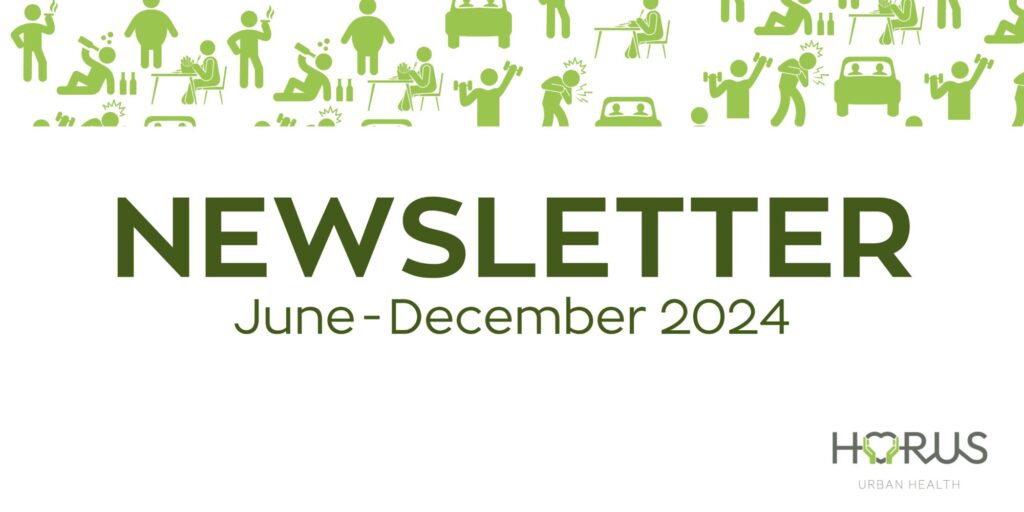Welcome to the second edition of the HORUS Newsletter!
We are excited to bring you an update on the incredible strides our project has made in the past few months. In this issue, we’ll highlight key developments, recent successes in our research, and new initiatives underway across our pilot cities. As we continue to explore how urban environments shape public health, we are making impactful progress toward healthier communities. Join us as we reflect on the lessons learned, share our latest findings, and look ahead to the upcoming milestones in 2025.
HIGHLIGHTS
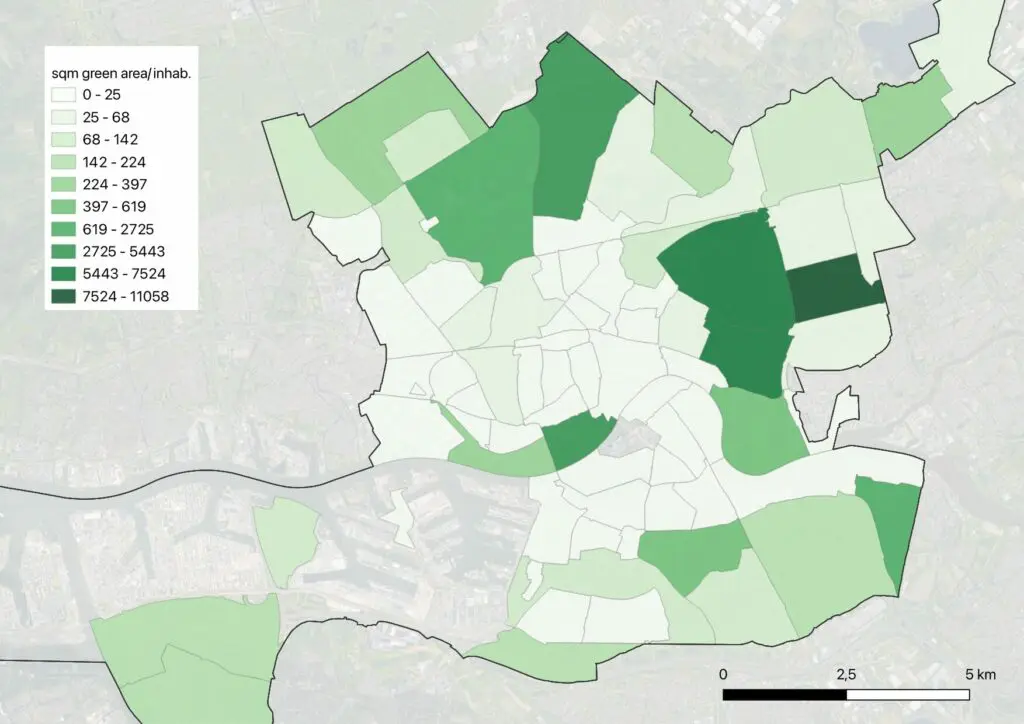
-
Do you know the HORUS – Urban Health Project?
HORUS is in its analysis phase, mapping urban factors in Rijeka, Rotterdam, and Valencia to understand how the environment impacts vulnerable populations’ health. Early findings highlight areas rich in green spaces, walkable neighborhoods, and service accessibility. These insights will shape future interventions to reduce risks like diabetes and cardiovascular diseases.
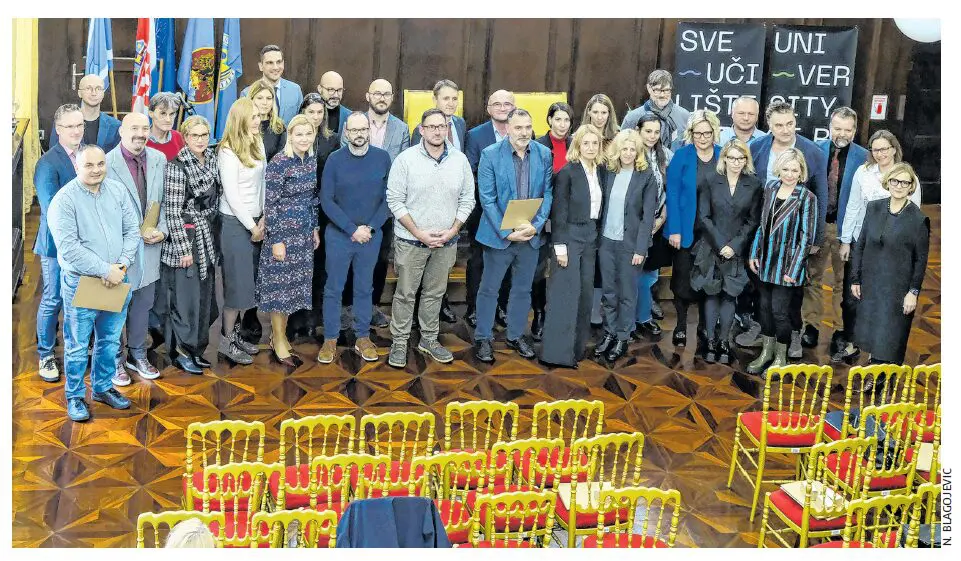
-
Recognition for Research Excellence
Vanja Vasiljev, leader of Work Package 4 in the HORUS project, has been named University Research Professor by the University of Rijeka.
EVENTS
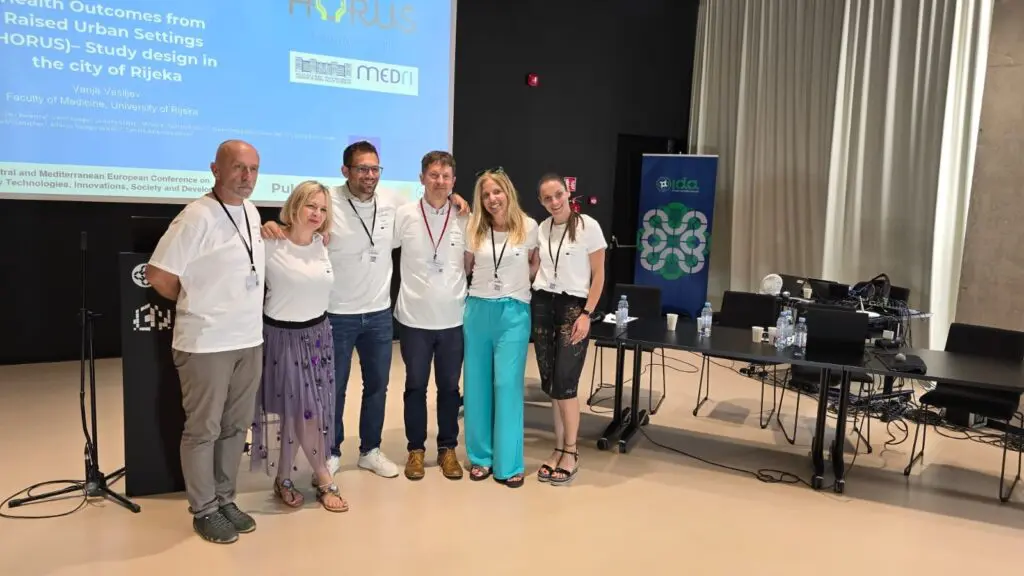
-
MEDRI Participation at the ‘Central and Mediterranean European Conference on New Technologies, Innovations, Society and Development’ – ‘PulaTechConf2024’
The MEDRI team represented HORUS at the inaugural PulaTechConf2024 in Pula, Croatia, held July 15–17. This multidisciplinary conference brought together over 150 participants to discuss innovations in technology, medicine, and society.
The team presented five studies, including topics on mindfulness for stress reduction, salt reduction through technology, and the HORUS study design in Rijeka.
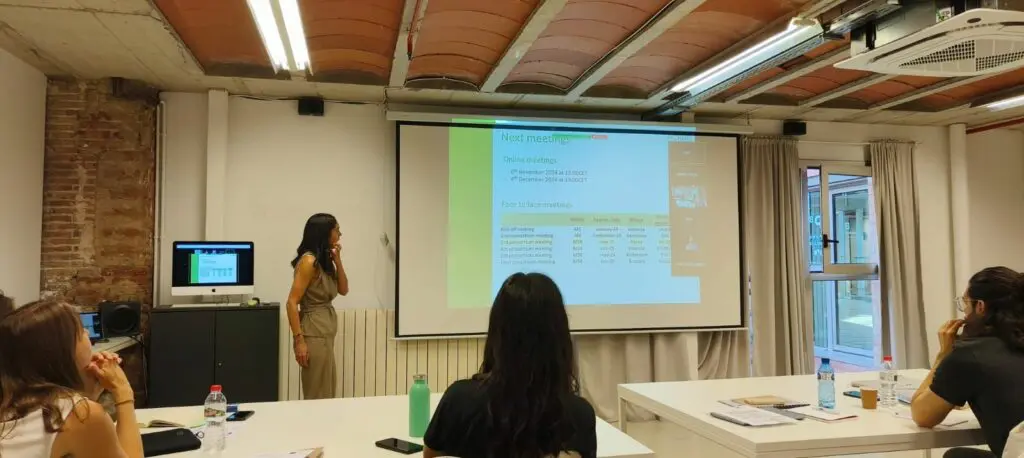
-
HORUS Project Consortium Meeting- 25 & 26 September 2024- Barcelona, Spain
The HORUS Consortium gathered in Barcelona on September 25–26 for a productive meeting organized by Bax & Healthy Cities. Partners reviewed initial results from the Rotterdam pilot, discussed progress in other pilots, and tackled upcoming challenges.
Check out the photos and insights!
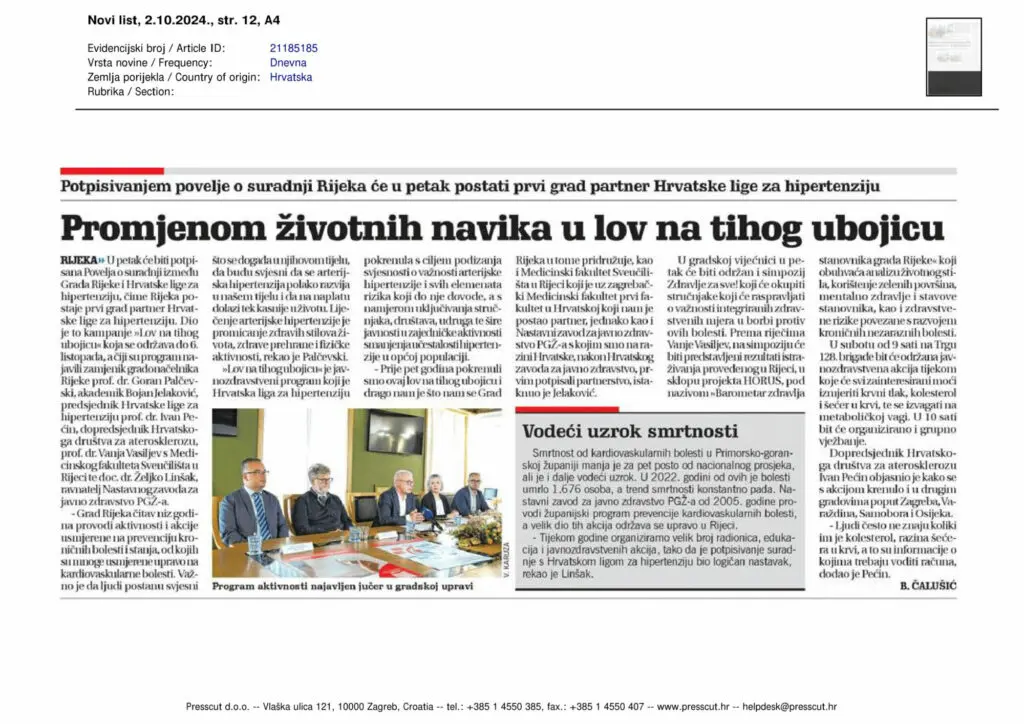
-
The public health education campaign ‘The Hunt for the Silent Killer’ in Rijeka- HORUS and MEDRI
From October 1–6, 2024, Rijeka hosted the public health campaign ‘The Hunt for the Silent Killer,’ focusing on hypertension awareness. Citizens engaged in health screenings, including blood pressure, cholesterol, and blood sugar, while learning about the HORUS project and its goals.
Key events included a launch in Rijeka’s city center and the signing of a cooperation agreement making Rijeka the first partner city of the Croatian Hypertension League. This impactful week marked progress in improving cardiovascular health and advancing the HORUS pilot in Rijeka.
PROJECT UPDATES
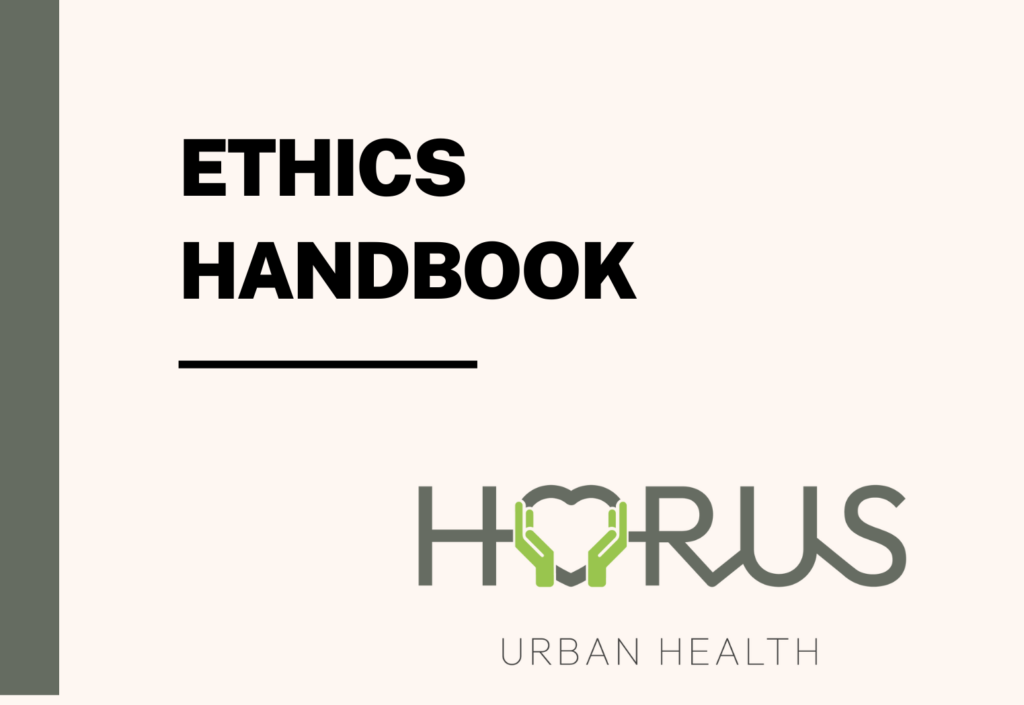
- Ethics Handbook
The HORUS Ethics Handbook has been created to guide the project’s research practices, ensuring ethical standards are met throughout its duration. Focusing on protecting participant rights, especially for vulnerable groups, the handbook covers essential principles like privacy, informed consent, and data handling in line with GDPR standards.
The handbook will be regularly updated, with a final version due in 2026, ensuring continuous compliance with international and national ethical guidelines.
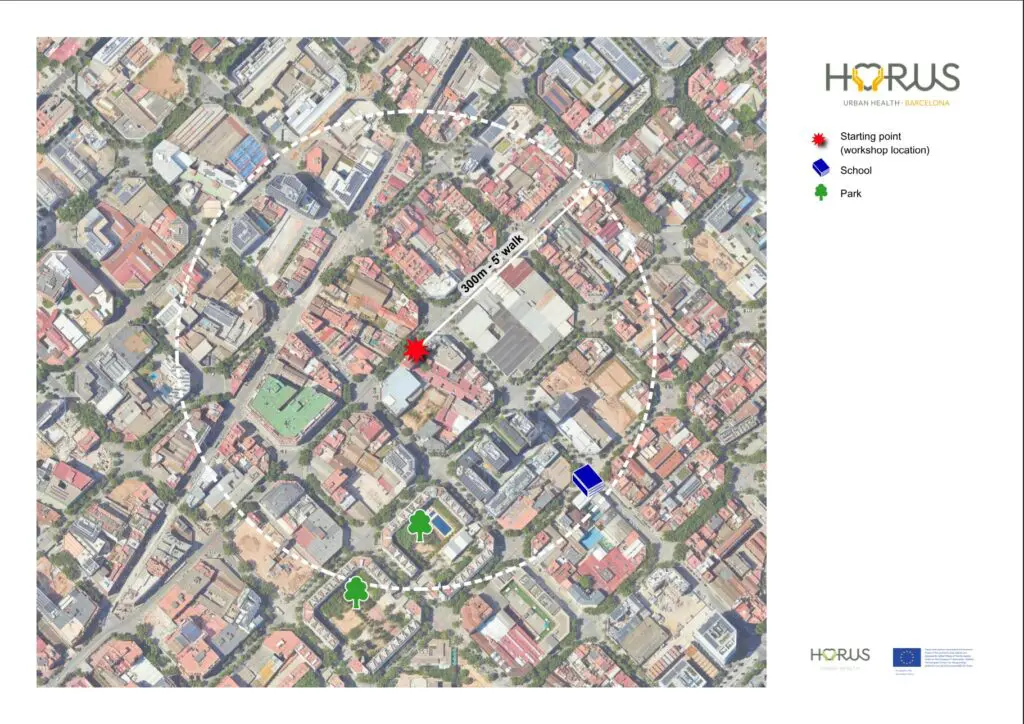
-
Exploring urban health: A community initiative of the HORUS project
In a unique initiative, the HORUS project is engaging local communities to improve urban health. During a recent partner workshop in Barcelona’s Poblenou neighborhood, participants used a narrative approach to explore the urban environment, considering factors like accessibility, safety, and available resources for a healthy lifestyle.
The collaborative experience led to a detailed analysis of urban health perceptions, helping identify areas for improvement. This initiative will expand to over 150 citizens across three pilot cities, encouraging active community involvement in shaping healthier urban spaces.
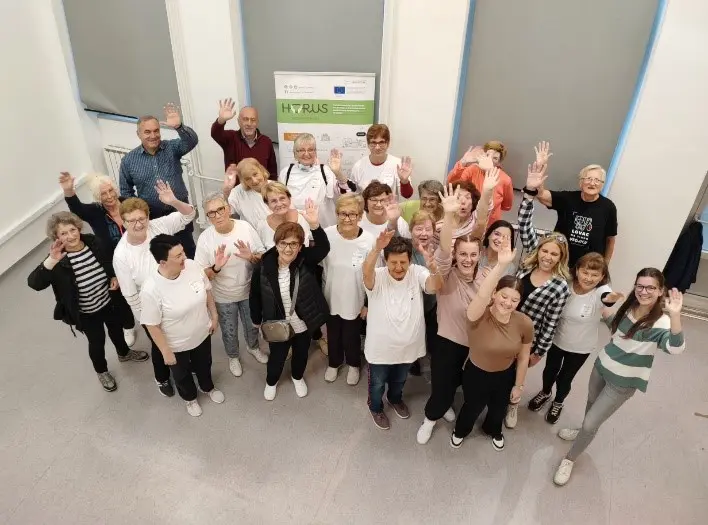
-
Recruitment started in the HORUS pilot in Rijeka, Croatia
In mid-October 2024, recruitment started for the HORUS pilot in Rijeka, Croatia. The MEDRI team organized anthropometric measurements for older adults as part of their public health initiatives. Participants are invited to join focus groups and interviews to explore the link between urban environments and the risk behaviors leading to chronic diseases. The pilot will include 300 participants in Rijeka, who will contribute to shaping interventions for healthier lifestyles.
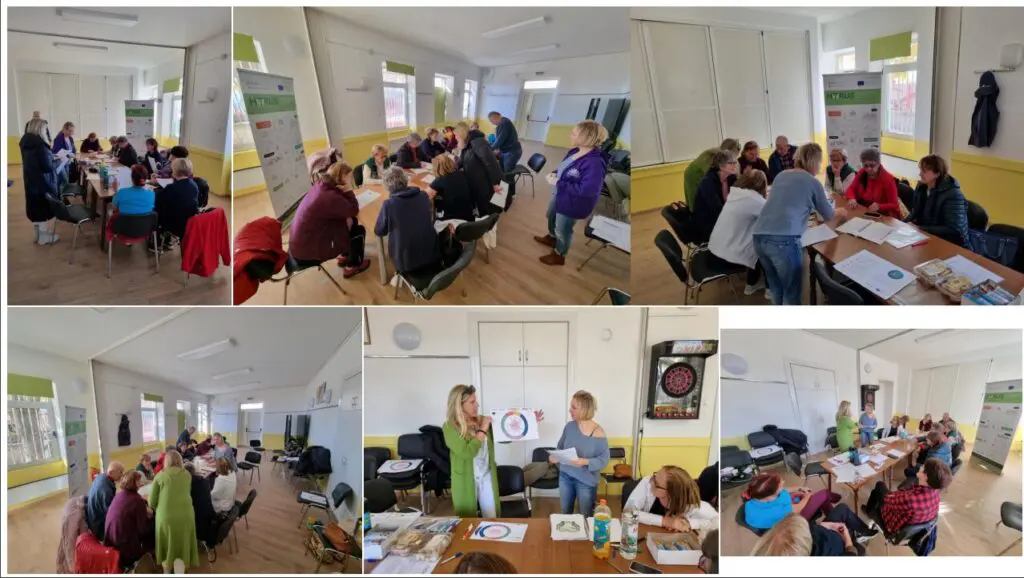
-
Focus Groups and Interviews in Rijeka: A Key Milestone in the HORUS Project
In November 2024, the MEDRI research team conducted focus groups and in-depth interviews in Rijeka, Croatia, marking an important phase in the HORUS project. These sessions gathered insights from both local residents, especially vulnerable groups affected by NCDs, and professionals. A total of five focus groups were organized, with three focusing on residents from specific neighborhoods and two involving professionals.
For more details and insights from the sessions, click here.
SCIENTIFIC PUBLICATIONS

-
ERASMUS MC as HORUS Rotterdam PILOT leader: Leveraging Data and Stakeholder Insights for Urban Health
ERASMUS MC, a key partner in the HORUS project, has utilized data from the Gezondheidsmonitor to create thematic maps that highlight health indicators across Rotterdam’s neighborhoods. These maps help identify areas for targeted health interventions.
The team is also preparing a stakeholder analysis to engage local networks, ensuring interventions are community-driven. This data-driven approach aims to build healthier urban communities in Rotterdam, Rijeka, and Valencia, with local contributions encouraged for impactful results.
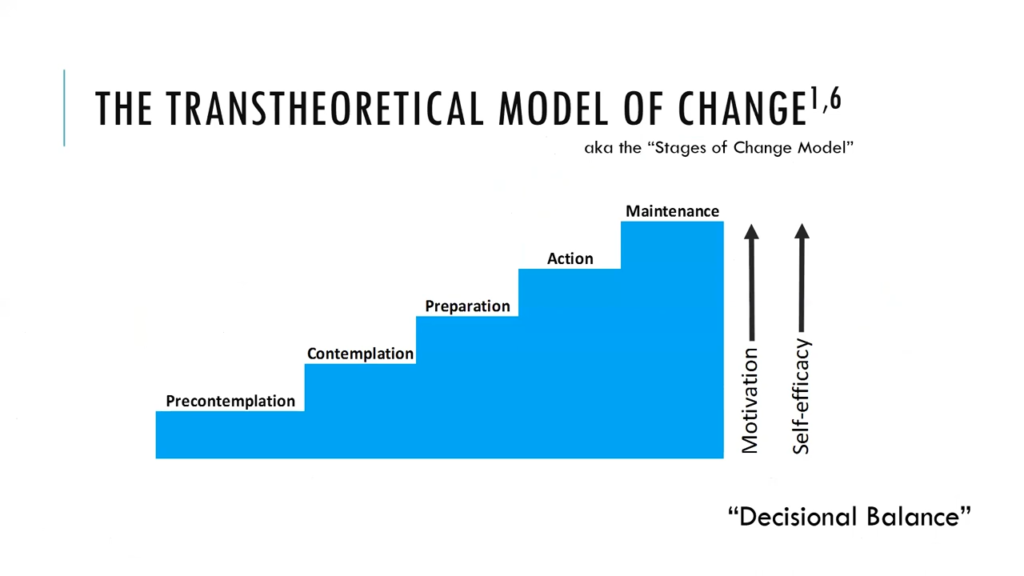
-
Motivational Interviewing and Transtheoretical Model
The HORUS project utilizes Motivational Interviewing (MI), a counseling technique that promotes behavior change to reduce health risks and encourage healthier lifestyles. MI helps individuals resolve ambivalence about change by fostering intrinsic motivation, using techniques such as open-ended questions, reflective listening, and summarizing. This person-centered approach empowers individuals to take responsibility for their health. It is paired with the Transtheoretical Model (TTM), which identifies a person’s readiness to change and guides them through the stages of change.
INTERNATIONAL DAYS:
- Croatian Hypertension Day: 11 November
COLLABORATIONS:
As we close this edition, we celebrate the significant strides made by the HORUS project in its first year, as we continue to explore the impact of urban environments on health outcomes. This progress has been made possible thanks to the collective effort of our partners. Their collaboration has been essential in identifying how urban planning and socio-economic factors can be transformed to promote healthier lifestyles and reduce the risks associated with NCDs.
Looking ahead, we are excited to turn these findings into actionable strategies and policies that can guide the design of healthier and more sustainable cities. The lessons learned will serve as inspiration for other urban areas, helping to create spaces that encourage active living, reduce health inequalities, and improve the quality of life for all residents.
We invite you to stay connected with us to receive the latest updates and opportunities for engagement. We would love to have you join us on this journey towards a healthier future!


